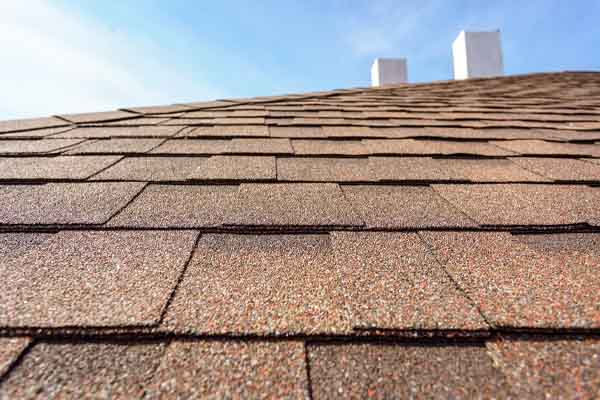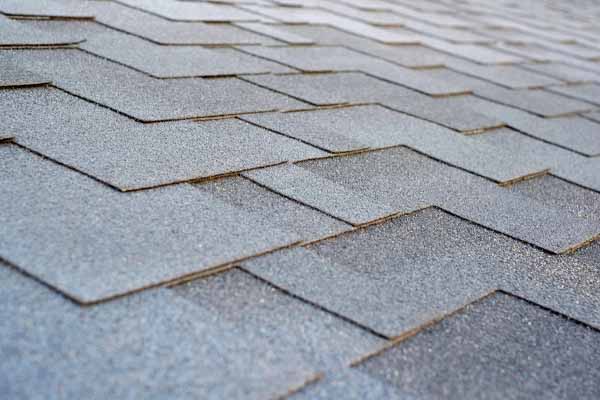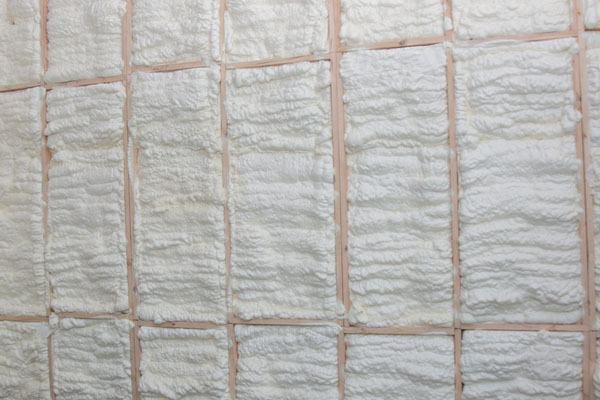Does Spray Foam Damage Roof Shingles?

Spray foam myths abound. These false beliefs prevent homeowners from using the material to its potential. For instance, a common question is, “Does spray foam damage roof shingles?” where some think spray foam can damage roof shingles and void the warranty. It is an old tale stemming from the notion that insulation is a heat source. Some continue to spread it like the gospel, but insulation specialists know better. Their impressive results from using spray foam for decades prove otherwise. Hearing the concerns of homeowners, they fight misinformation with research data and practical knowledge. Read on as we bust this myth with science.
Does Spray Foam Damage Roof Shingles?
Keep reading to explore the answer to this question.
Spray Foam is Not Harmful to Shingles
Many people conduct research before spending on products and services, including home insulation. Unfortunately, they often encounter unreliable sources that lead them astray. Some of these may be in the construction industry, like roofers who warn against spray foam because it allegedly makes shingles curl. They haven’t seen it happen, but they pass it on to others after hearing it from their peers. No one bothers to check whether it is true or not. Insulation experts must correct this notion immediately using hard evidence. Accurate information leads to better decisions and greater customer satisfaction.
Related Article: Why Call A Colorado Insulation Contractor When Replacing Your Roof
What is a Hot Roof?

In the early days of attic insulation, everyone was keen on avoiding having a hot roof. They thought insulation produced heat, making it unsuitable for roofing applications. It was a common belief among industry professionals. However, nothing could be further from the truth. Spray foam acts as a heat barrier between two spaces. It prevents outdoor conditions from influencing indoor temperatures. Hence, installing it won’t make the roof hot. It will only ensure that the attic maintains the same temperature as the rest of the house across all seasons, unaffected by the summer sun and winter snow.
Related Article: Injection Foam Insulation vs. Spray Foam Insulation: What’s the Difference?
The Effects of an Unvented System
Insulated roof decks become part of the conditioned space. It is beneficial for roofs because it prevents the formation of ice dams. However, some worry that it interferes with venting. Foam insulation creates an air seal that keeps hot air out of the house. An unvented attic may bump the roof temperature, but the change is negligible. It is not enough to damage the shingles.
The Florida Study
The Florida Solar Energy Center proved this assertion when it conducted a study during the peak of summer. Remember that the state experiences scorching temperatures because of its geographic location. Researchers measured roof shingle temperatures above attics with and without a radiant barrier. It led to some interesting findings.
They found that the maximum temperature readings in the two conditions differed by a few degrees. The slight bump had an insignificant effect on the shingles. This roofing material is not as fragile as some might think.
Insulated roofs measured only 2 to 5 degrees Fahrenheit more than their uninsulated counterparts. They attributed the temperature range to the color of the shingles. Darker pieces absorb more light and retain more heat. In contrast, lighter sections reflect light to prevent heat build-up. Choose the right shade for your needs.
Related Article: What Is Thermal Bridging In Colorado Homes?
The Illinois Study

Another study from the University of Illinois came out regarding the summer temperatures of shingles on residential attics. Professor William Rose wrote that ventilation lowers shingle temperatures only by 2.7%. It is not as crucial as many think it is. You can switch to an unvented system without much of a penalty.
Other factors have more influence on roof heat, like shingle color and roof orientation. White shingles are up to 23% cooler than black variants. Color switching can help you keep the external roof cool after installing insulation. The northern roof slope is also 8.7% cooler than the southern side because of less sun exposure.
Related Article: Fort Collins Attic Insulation Removal: What Goes into the Process?
The Ventilation Study
Carl Cash and Edward Lyon wrote an article published in Professional Roofing magazine about the value of ventilation. Their research confirms the results of the Florida and Illinois studies. They said roof temperature extremes don’t affect the service life. Modifying the roof color from black to white had more impact on annual mean temperature than ventilation, with average reductions of 1.6 and 0.7 degrees Celsius. It means you can get better results from white shingles than air vents. Geographic location and roof orientation are also vital factors.
Attic Insulation with Spray Foam
The heat inside attics radiates across homes. Without insulation, your air conditioner must work harder to keep you comfortable. It leads to higher energy consumption, more greenhouse gas emissions, and costlier monthly bills. Insulating with spray foam prevents heat from getting inside the attic. It stays on the surface of the roof until it dissipates.
Installers spray the liquid foam on the open cavities of the roof, right under the shingles. It expands and solidifies as it cures, covering every cubic inch. It shields against heat, noise, pests, water, and airflow. Far from causing damage, the foam can extend the lifespan of the attic.
Related Article: The Importance Of Home Air Sealing On Energy Costs In Colorado
Dealing with Existing Warranties
We debunked the myth surrounding shingles and insulation. The Florida study provided quantitative results to assuage fears. Knowing these, you might want to add spray foam to your attic now. Before you do, check the relevant documents to read the warranty conditions set by your contractor. These might adhere to erroneous traditional thinking. Call them up to discuss the matter. They may agree to new terms after learning about the latest research and changing their views. Ensure you are on the same page before starting any work in the attic.
Related Article: What Are The Pros And Cons Of Spray Foam Insulation?
Conclusion
Roofing contractors and shingle manufacturers often perpetuate myths. Once you learn the facts, you begin to see the flaws of their arguments. You gain confidence about using insulation in your attic by knowing it is not destructive but highly beneficial. Consult expert spray foam installers to ensure excellent results.
Related Article: How Does Insulation Affect Heat Loss?
Roof Insulation Services In Fort Collins, CO
If you are considering air sealing or upgrading your home’s insulation, it is best to seek professional guidance. However, not all professionals offer the same level of quality and pricing. Always make sure you work with the best professionals available in your area. Fortunately, residents of Fort Collins and nearby areas can turn to Ascend Construction for top-notch service.
At Ascend Construction, we specialize in insulation removal and installation, air sealing, energy conservation, energy audits, whole-house fan installations, and more. We’re confident that our service stands out from the rest.

For a free consultation with our experts, get in touch with Ascend Construction today. Our team can offer practical solutions to address any problem areas in your Fort Collins home. We guarantee affordable pricing and high-quality work. Click here to contact us, or call us using the button below. We offer free, no-obligation, in-home consultations.
Ascend Construction
4115 County Road 19
Fort Collins, CO, 80524
(970) 420-5495